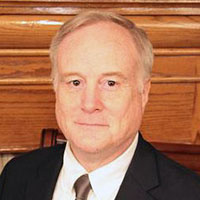Fort Smith Estate Lawyer, Arkansas
Douglas M. Carson
✓ VERIFIEDBusiness, Lawsuit & Dispute, Accident & Injury, Estate, Wills & Probate
Mr. Carson's practice includes personal injury, insurance, commercial, oil and gas, worker's compensation defense, and employment litigation. He also ... (more)
J Leslie Evitts
Estate, Workers' Compensation, Products Liability, Personal Injury
Status: In Good Standing
Bill Reynolds
Social Security -- Disability, Estate, Wrongful Termination, Bankruptcy & Debt, Accident & Injury
Status: In Good Standing Licensed: 33 Years
Brent Alan Hall
Estate, Divorce & Family Law, DUI-DWI, Criminal
Status: In Good Standing Licensed: 16 Years
Bruce Hollis Bethell
Education, Landlord-Tenant, Visa, Estate
Status: In Good Standing Licensed: 50 Years
Carl Michael Daily
Real Estate Other, Land Use & Zoning, Oil & Gas, Immigration, Estate
Status: In Good Standing
Cheryl K. Harper
Litigation, Estate Planning, Environmental Law Other, Business & Trade
Status: In Good Standing
Christopher DeWitt Brockett
Lawsuit & Dispute, International, Estate, Business
Status: In Good Standing Licensed: 19 Years


